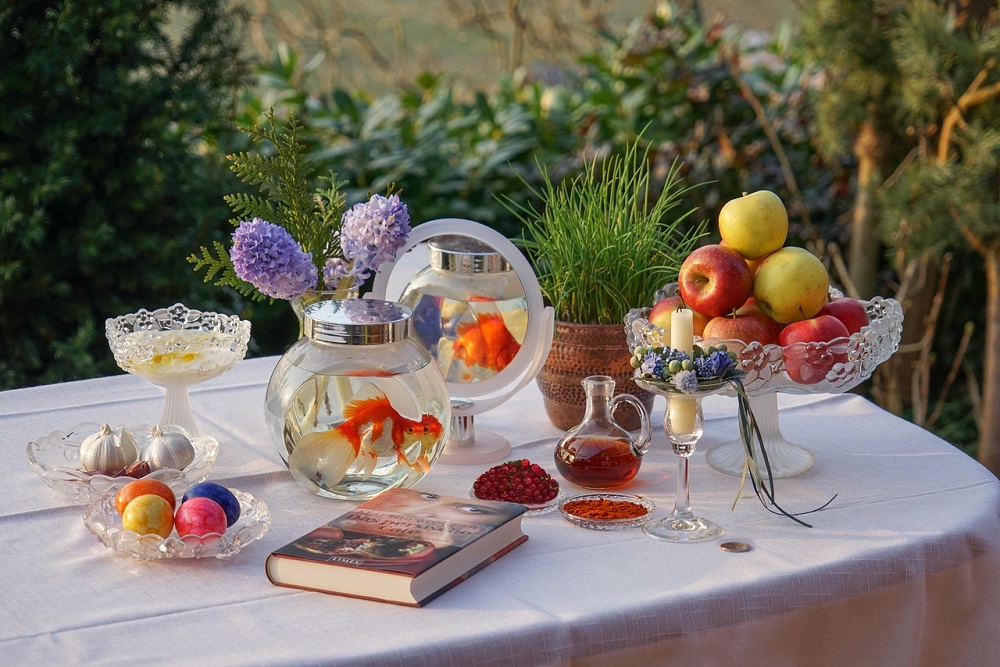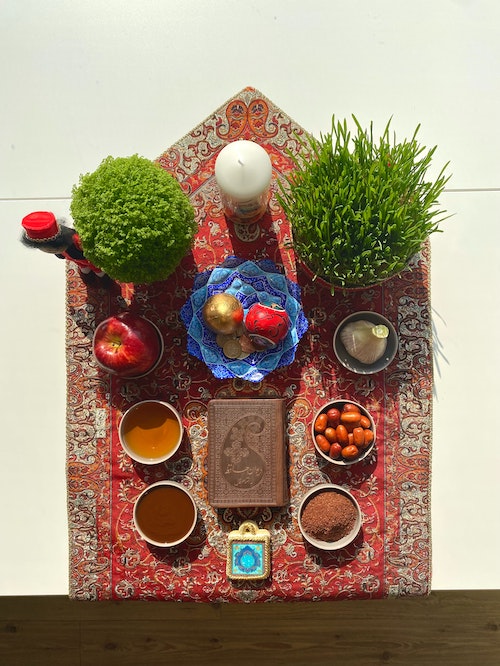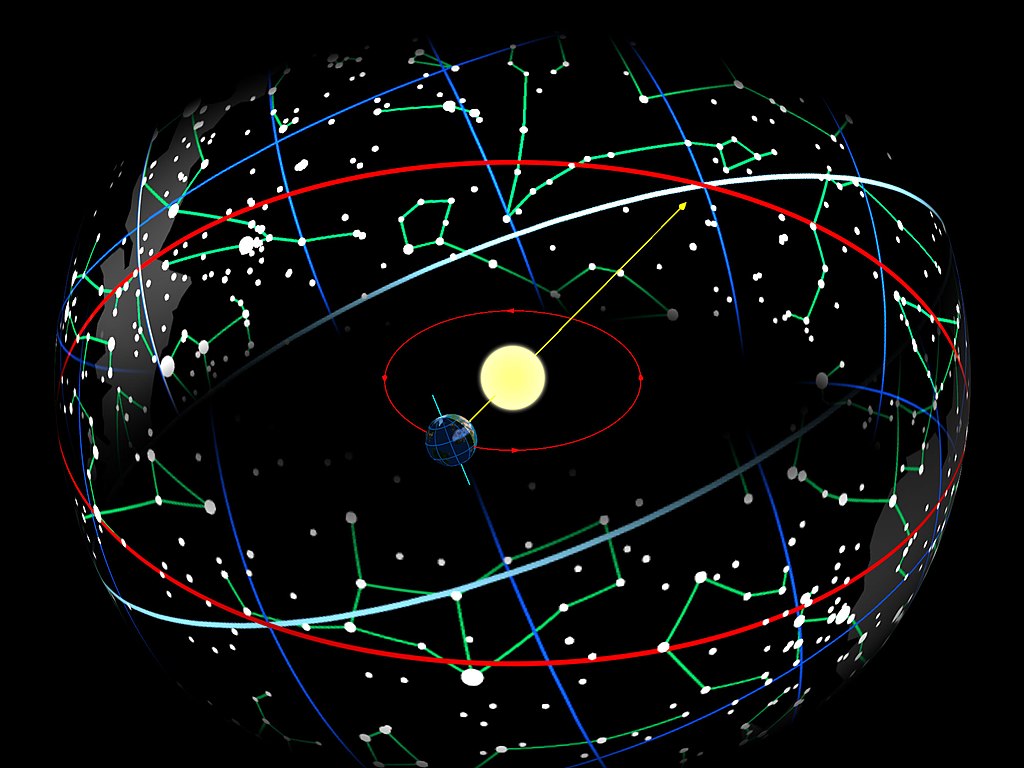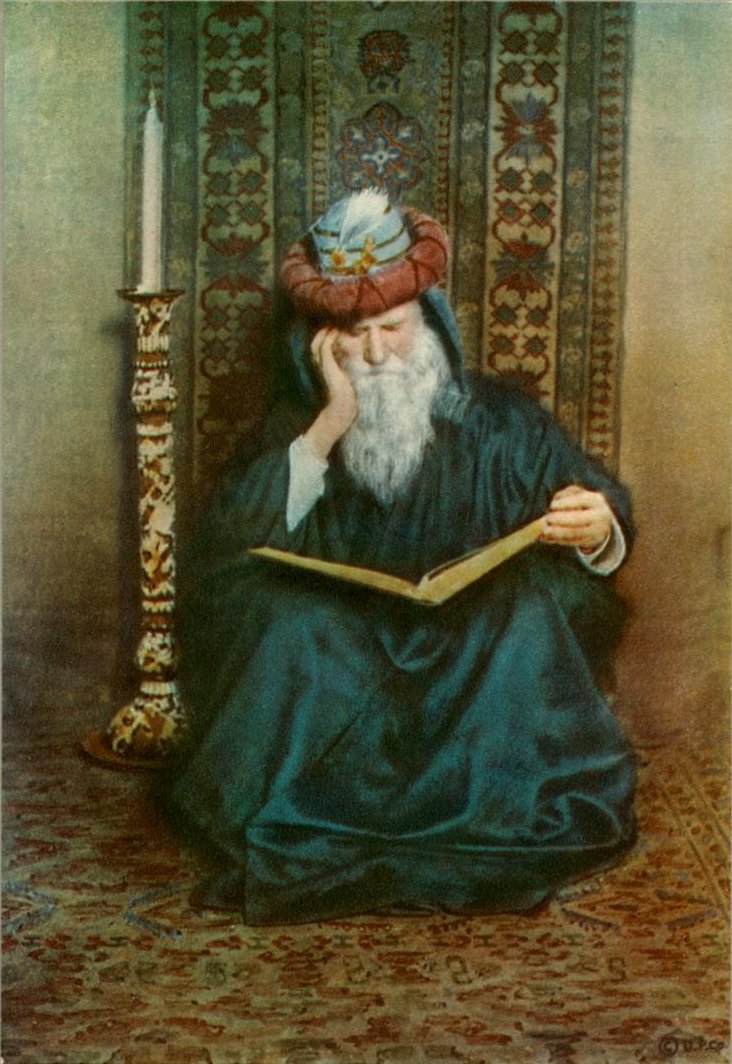A Persian New Year’s Day

Photo: Gabriele M. Reinhardt on Pixabay
The 21st March is the International Day of Nowruz, which marks the beginning of the Persian New Year . Shara Atashi explains its history and describes new connections being made in Wales.
Last week, the Welsh National Opera approached me to speak about a collaboration. You can imagine, I felt honoured. WNO is one of the most prestigious opera companies of the world, shining not only with first-class artists, but also with a fascinating history.
History of the Welsh National Opera
It all began in the dark days of WWII, in November 1943. The son of a miner and music teacher, Idloes Owen from Merthyr, gathered his friends around him and proposed the founding of a new Welsh opera company. Established at Cathays Methodist Chapel under the name Welsh National Opera Company, the first rehearsal took place on the 6th of January 1944 with sixty amateur singers: shop workers, a butcher, a publican, and railway workers. The first performance was in April 1944 at the Empire Theatre Cardiff, with regular concerts thereafter.
By 1946, and in the years that followed, the group turned into a prolific serious opera company. The Western Mail reported: ‘This new Welsh company came through their first night with flying colours and promise to become as important to singing in Wales as the National Eisteddfod itself’. Success kept growing, the company became fully professional, and toured Britain and the world. However, they have always remained loyal to their roots: making the art of opera accessible to all.
Human rights
In 2019, the Opera partnered with Oasis Cardiff for the WNO FREEDOM Season, a series of operas exploring human rights.
Oasis is a refugee organisation which helps refugees and asylum seekers integrate within their local community. The centre, which is accessed by about three hundred people every day, began its mission also with a dream: in 2008, three volunteers, Reynette Roberts MBE and two Iranian asylum seekers opened a small church room serving tea and coffee with roughly thirty visitors a day. The centre now has its own space on Splott Road in Cardiff offering a range of activities, from bike maintenance to birthday parties and theatre projects.
The partnership with WNO began with the song cycle Hope Has Wings, which was created by Oasis clients and performed at a very special Oasis supper with WNO soloists, young singers and members of the WNO orchestra. The overwhelming response made way for further collaboration with new musical ideas, stories and concepts. But the pandemic hit and it seemed to disrupt the project. However, the team met online and kept working together, which led to the film opera A Song for the Future in 2020/2021. It’s a story about inequality, featuring a recently arrived refugee and her hopes, fears and dreams in a world suddenly paused.
As the stress of lockdowns subsided, the team felt that it was time for a stage performance with refugees and artists of the WNO. The outcome was The Shoemaker, a piece about storytelling, resilience and integrity.
Spring comes with a message
The Opera got in touch with me to ask if I would like to contribute to the Nowruz celebration, which the WNO provides for the refugees as part of their partnership with Oasis. What an amazing opportunity!
I am of Iranian origin and became a refugee myself forty-three years ago in Germany. I know what it means to lose your homeland, and with it your family, close relatives, the way they love you unconditionally, and of course your cultural traditions. I know the alienation refugees endure. But, having lost all that, I can’t imagine any better place for a Nowruz celebration than Wales as part of its culture of ‘Sanctuary’ and pluralism.
What is Nowruz?
Nowruz, meaning ‘new day’ in Persian, blossoms anew in the engagement between the Opera and Oasis. Because a group of people from different parts of the world gather to experience a planetary event: the last pirouette of planet Earth that ends the winter and marks the beginning of the astronomical spring, coinciding with what we know as the vernal equinox. It’s a time to reflect that we are the citizens of the Earth, regardless of our faith and ethnicity.

Intangible cultural heritage
In 2009, the United Nations brought Nowruz under its protection as an ‘Intangible Cultural Heritage of Humanity’. Living traditions, such as rituals and social practices, are more vulnerable to extinction than artefacts and monuments. They can simply disappear when peoples are conquered or displaced.
In 2010, the United Nations recognised the 21st of March as the International Day of Nowruz. The member state which initiated this step was the Republic of Azerbaijan, not Iran, where the festival is rooted. The current government of Iran would rather not see Iranians celebrate. That’s how vulnerable the intangible heritage of humanity is. It was the representative of Azerbaijan who said that the themes of Nowruz are vital to all humanity, because they encourage intercultural dialogue and inspire us to live our lives in harmony with nature by taking a more attentive and respectful attitude towards natural sources of life. For over 3000 years, more than 300 million people in the Balkans, the Black Sea Basin, the Caucasus, Central Asia, the Middle East and other regions have celebrated the ‘new day’. So, one government cannot abolish such an ancient intangible heritage.
Vernal equinox
Nowruz has survived the many conquerors of Iran throughout its multi-millennial history. Conquerors came with their calendars which shifted the date of Nowruz, so that it did not coincide with the exactly calculated vernal equinox around the 21st of March. Ancient Iran had rituals for every day of the week, every month and every season. Humans were more aware of the natural passing of time. Today, most of these rituals only exist in books and stories or are practiced by orthodox Zoroastrians. The Arabs had brought with them the lunar calendar in which the natural, astronomical order of the seasons and harvest times were not adjusted to tax collections.
This caused hardship for farmers and sellers when the tax collector knocked at the door before harvest, or, in some years twice a year. But in the 11th century, one Turkic king, Jalal Malek Shah I, who respected literature and science as well as justice, commissioned the poet and astronomer the creation of a new calendar.
Celestial
An observatory was built in Isfahan according to instructions by Omar Khayyam. He and a few other astronomers spent five years observing celestial bodies and their movements, using ancient Greek knowledge and an astrolabe to measure distances and angles. Khayyam observed that on the day of the vernal equinox the sun’s rays reach the Earth’s centre, the equator, in a straight line before moving over to the Northern Hemisphere (same happens during the autumnal equinox in the other direction).

On all the other days the sun’s radiation on Earth is curved because our planet orbits the sun in a tilt. He inaugurated his calendar, which has remained the most accurate in history, on the 15th of March 1079 (the spring equinox of that year) and named it Jalali calendar to honour the king who had financed the project. It is the official calendar in Iran and Afghanistan today.

Omar Khayyam
Khayyam’s name crossed the borders of Iran in 1859, when the English poet and orientalist Edward Fitzgerald discovered a manuscript of the Rubaiyat in the Bodleian Library in Oxford and translated them into English.
Beneath tears
Every human culture is full of knowledge and fascinating stories. Some of the displaced people are lucky when they reach the shore alive. Others arrive alive, but wither in poverty or from humiliation. But when one of the finest operas of the world reaches out to connect with foreign culture that arrives with the refugees, it’s a miracle hidden beneath tears.
You can’t imagine how happy that I too can contribute to this work with my knowledge of Iranian literature.
Support our Nation today
For the price of a cup of coffee a month you can help us create an independent, not-for-profit, national news service for the people of Wales, by the people of Wales.





